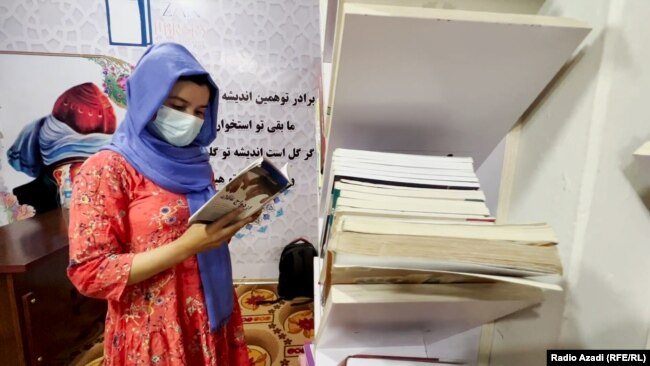RFE/RL Condemns Taliban Move to Further Silence Independent Media
Today, the Taliban removed Radio Free Europe/Radio Liberty’s (RFE/RL) award-winning programming from AM and FM radio transmission networks in Afghanistan.

WASHINGTON, D.C. – Today, the Taliban removed Radio Free Europe/Radio Liberty’s (RFE/RL) award-winning programming from AM and FM radio transmission networks in Afghanistan.
“Azadi is a lifeline for tens of millions of Afghans, making the Taliban’s decision all the more tragic,” said RFE/RL President and CEO Jamie Fly. “RFE/RL will not change our editorial line to accommodate Taliban demands in order to stay on the air. We know from experience that our audiences make great efforts to find us. The truth cannot be completely suppressed.”
For decades, RFE/RL’s Afghan Service, known locally as Azadi, has been a staple of everyday life in Afghanistan, commonly heard in public settings, from marketplaces to taxis. In a recent survey commissioned by the U.S. Agency for Global Media, half of Afghan adults surveyed use Azadi content weekly. Despite significant pressure from the Taliban, RFE/RL continues to provide bold coverage of stories suppressed by state media. Azadi has given a platform for the most vulnerable — women and girls, victims of violent extremism, the LGBTQI+ community, and youth — to share their experiences. Azadi has also informed Afghans about public health, provided school lessons for girls, exposed corruption, and helped the powerless find community and hope.
In contrast to official Taliban claims, Afghans have again and again expressed their appreciation and gratitude to RFE/RL for providing a vital public service. RFE/RL will continue broadcasts from outside the country, and will expand options to reach its dedicated audience through other platforms.
RFE/RL’s Afghan Service is one of the most popular and trusted media outlets in Afghanistan, providing uncensored news in the Dari and Pashto languages. Following the Taliban takeover, RFE/RL closed its Kabul bureau, yet Azadi continues to cover events ignored by state media. In partnership with Learn Afghanistan, Azadi has also used innovative and accessible platforms to provide lessons for girls in grades 7-12 now barred from attending school. RFE/RL’s Afghan Service has a growing digital presence to reach younger audiences, with millions of video and page views on its websites, Facebook, Instagram, and YouTube.
Afghanistan is one of the most dangerous places in the world for journalists, and RFE/RL journalists have paid the ultimate price for their commitment to a free press. In 2018, three Radio Azadi journalists — Maharram Durrani, Abadullah Hananzai, and Sabawoon Kakar — were killed in a suicide bomb attack in Kabul. In 2020, Mohammad Ilyas Dayee was killed in a targeted bomb attack.
For more information, contact press@rferl.org.